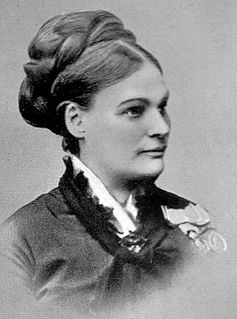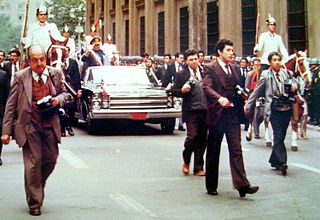
Bo Axel Magnus Lundgren is a Swedish politician. He was the leader of the Moderate Party from 1999 to 2003.

Carl Weathers is an American actor and former professional football player. He is best known for portraying Apollo Creed in the Rocky series of films, Al Dillon in Predator, Chubbs Peterson in Happy Gilmore and Little Nicky, and a fictionalized version of himself on the comedy series Arrested Development. As a football player, Weathers played for the Oakland Raiders of the National Football League and the B.C. Lions of the Canadian Football League.

Hans Lundgren, better known as Dolph Lundgren, is a Swedish actor, director, screenwriter, film producer and martial artist. Lundgren's breakthrough came in 1985, when he starred in Rocky IV as the imposing Soviet Union boxer Ivan Drago. Since then, he has starred in more than 40 films, almost all of them in the action genre.
Ex parte is a Latin legal term meaning "from [the/a] party."
An ex parte decision is one decided by a judge without requiring all of the parties to the controversy to be present. In Australian, Canadian, U.K., South African, Indian, and U.S. legal doctrines, ex parte means a legal proceeding brought by one person in the absence of and without representation or notification of other parties. It is also used more loosely to refer to improper unilateral contacts with a court, arbitrator, or represented party without notice to the other party or counsel for that party. The phrase was common in the titles of habeas corpus and judicial review cases up until the end of the twentieth century, because these cases were originally brought by the Crown on behalf of the claimant. In Commonwealth common law jurisdictions, the title typically appeared as R v (Defendant), ex parte (Claimant); in the US, this was shortened to Ex parte (Claimant). A proceeding in an executive agency to establish a right, such as patent prosecution, can also be ex parte.
A number of cases were tried before the Supreme Court of the United States during the period of the American Civil War. These cases focused on wartime civil liberties, and the ability of the various branches of the government to alter them. The following cases were among the most significant.
Ex parte Endo, or Ex parte Mitsuye Endo, 323 U.S. 283 (1944), was a United States Supreme Court ex parte decision handed down on December 18, 1944, in which the Justices unanimously ruled that the U.S. government could not continue to detain a citizen who was "concededly loyal" to the United States. Although the Court did not touch on the constitutionality of the exclusion of people of Japanese ancestry from the West Coast—which they had found not to violate citizen rights in their Korematsu v. United States decision on the same date—the Endo ruling nonetheless led to the reopening of the West Coast to Japanese Americans after their incarceration in camps across the U.S. interior during World War II.
Ex parte Lundgren is a decision by the United States Patent and Trademark Office board of appeals, i.e. the Board of Patent Appeals and Interferences (BPAI), that asserts that process inventions do not have to be in the technological arts in order to be patentable in the United States. They do, however, have to produce a "concrete, useful and tangible result". Lundgren was then superseded by In re Bilski, which jettisoned the "concrete, useful and tangible result" test.
Ex Parte Bowman 61 U.S.P.Q.2d 1669 was a decision by the U.S. Board of Patent Appeals and Interferences which asserted that in order to be patent-eligible, a process had to involve or promote the technological arts. This decision was overruled by the Board's subsequent Ex Parte Lundgren decision, but the Board's and then the Federal Circuit's In re Bilski opinion then superseded Lundgren. In re Bilski, however, rejects use of "not in the technological arts" as a basis for a rejection, although it seems to accept the concept when differently named. Bilski is now pending on writ of certiorari.
Andrew Humphreys was a U.S. Representative from Bloomfield, Greene County, Indiana, who served in the Forty-fourth Congress. Prior to the American Civil War, Humphreys was as a member of the Indiana House of Representatives, and an Indian agent for Utah. In 1864 Humphreys was a defendant in a controversial trial by a military commission that convened on October 21 at Indianapolis, where he and three others were convicted of treason. Humphreys was sentenced to hard labor for the remainder of the war, but the sentence was modified three weeks later to allow for his release. At the end of the war, Humphreys resumed a career in politics, which included terms in Forty-fourth Congress and the Indiana Senate.
Lundgren is a Swedish surname. Notable people with the surname include:

Lea Fredrika Ahlborn was a famous Swedish artist and medallist. She was a member of the Royal Swedish Academy of Arts and the first woman to be appointed royal printmaker. The position of royal printmaker was counted as a public office, and thereby made her the first female official or civil servant in Sweden.
The 1987 Rye Brook Open was a tennis tournament played on outdoor hard courts that was part of the 1987 Nabisco Grand Prix. It was played at Rye Brook, New York in the United States from August 24 through August 31, 1987.
Wayne Lundgren is an Australian professional baseball pitcher who is currently a free agent. He has previously played for the Brockton Rox of the Can-Am League and the Sydney Blue Sox of the Australian Baseball League (ABL).

Cover Up is a 1991 American political thriller film directed by Manny Coto starring Dolph Lundgren and Louis Gossett Jr.. Coto was hired at the latest stage of pre-production right before filming, after writer / director William Tannen left the project.
Ex parte Curtis, 106 U.S. 371 (1882), is an 8-1 ruling by the United States Supreme Court that the Act of August 15, 1876 was a constitutional exercise of the enumerated powers of the United States Congress under Article I, Section 8 of the United States Constitution.

R v Bow St Metropolitan Stipendiary Magistrate [2000] 1 AC 61, 119 and 147 is a set of three UK constitutional law judgments by the House of Lords, on whether former Chilean dictator Augusto Pinochet could claim state immunity from torture allegations made by a Spanish court and therefore evade extradition to Spain. It affected international criminal law and human rights law.







